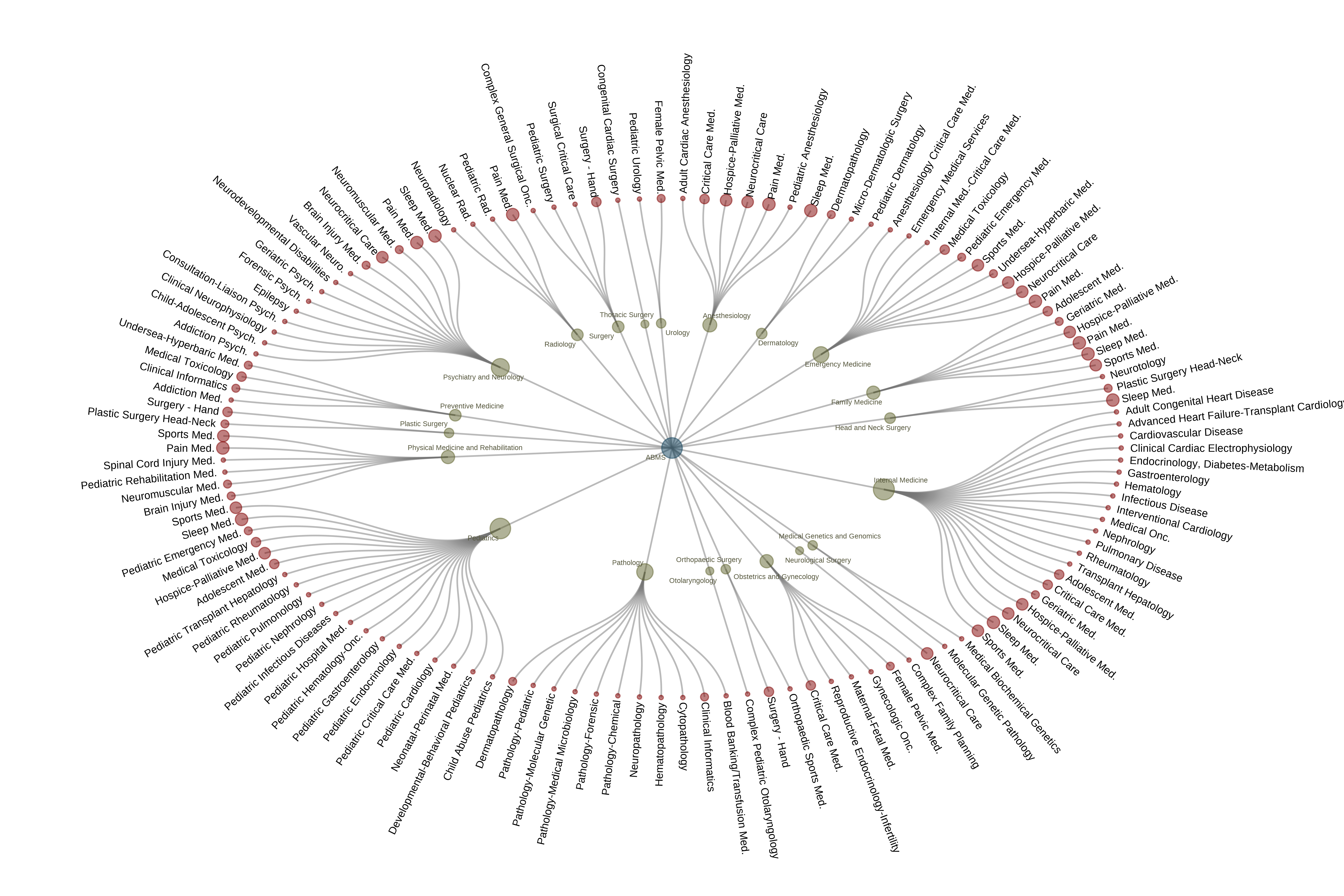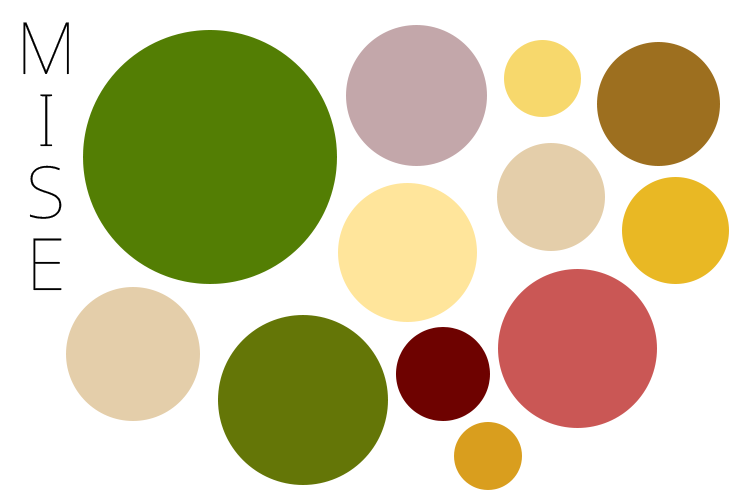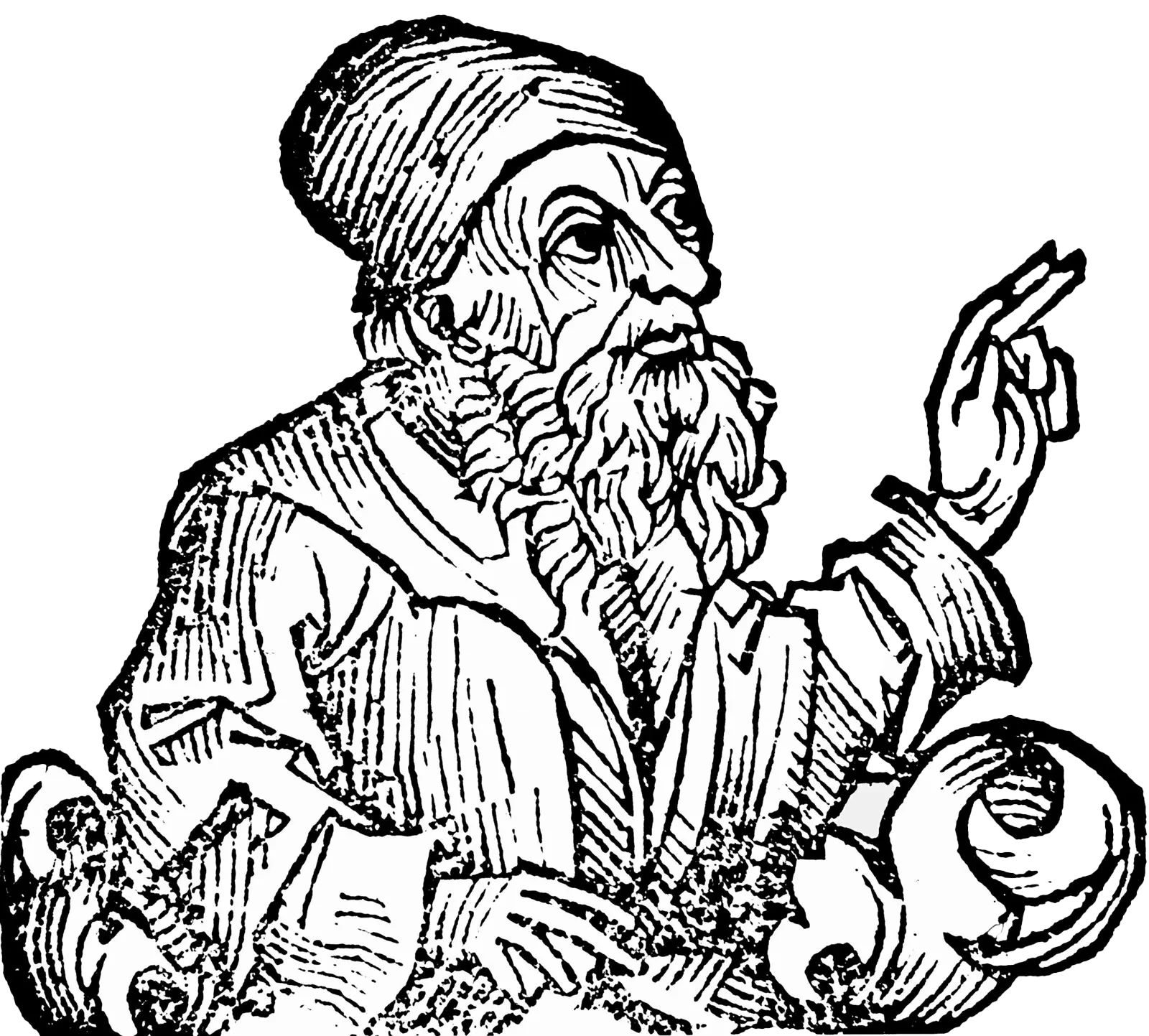projects
My research investigates how networks of collaboration evolve and influence the work of professionals and experts, particularly in the scientific and medical fields. I use a variety of methods including open-ended unstructured interviews, ethnography, network and text analysis.

Collaboration and Decision-Making in Medicine
My primary area of work explores how clinicians in different medical specialties collaborate on the care of the seriously and terminally ill. This work has three primary strands, each focusing on a different level of this phenomenon with different means of data collection and analysis.
This research is motivated by the observation that growing specialization within professions has both positive and negative consequences: more technically focused professionals can address highly complex problems with precise and efficacious interventions, but social differentiation along specialty lines leads to the development of specialty specific forms of evaluation and knowledge.
Winning at a Losing Game: Divergent Ontologies and Shared Practices in Medicine
Using ethnographic and interview methods, my dissertation investigated how different medical specialties manage the care of terminally ill patients. In particular, my research focused on the role of Hospice and Palliative Medicine in translating between patients and clinicians and how they can help coordinate these parties to mutual goals of medical intervention.
Find my dissertation here.
From Talk to Action: The Role of Interactional Style in Tumor Board Decision-Making
The care of patients relies upon the careful interdigitation of many kinds of clinicians with very different ways of talking about and engaging patient care. To say the least, collaboration is critical to the well-being and survival of critically ill patients. A better understanding of how these collaborations occur, and where reliable failures of coordination take place, will help to improve the multidisciplinary care of patients.
Motivated by findings from my dissertation, particularly the linguistic and interactional differences between specialist clinicians, this ongoing project with Maxwell Vergo and Amber Barnato seeks to better understand how specialist clinicians translate their own unique ways of thinking abd talking about their work to their colleagues in tumor board meetings where clinicians meet to arrive at a consensus as to what should be recommedended in a patients case.
Clinician Networks and Referral Patterns in ADRD Care
Sociologists of health have argued that systematic and long-standing differences in health outcomes among relatively higher and lower-resourced individuals result from the social conditions in which these individuals live: lower SES and persons from marginalized groups are at greater “risk of risk” as a result of having relatively fewer social and material resources to muster against negative life events. Early advantages or disadvantages can compound, being described as the “Matthew Effect”, and summarized in the adage “the rich get richer and the poor get poorer”.
Further, sociologists have identified the patient-clinician relationship as a primary vector for such disadvantages in social resources to influence health outcomes. Using social network analysis with Medicare Claims Data, this project seeks to contribute to our understanding of how the structure of the patient-clinician relationship differs between disadvantaged individuals, members of marginalized groups, and their more advantaged peers. Focusing on individuals diagnosed with Alzheimers Disease and Related Disorders (ADRD), this project will test to what degree the sequences of clinicians that disadvantaged and advantaged patients follow differ, and how the involvement and timing of palliative care varies between the two groups.
Status and Subfield: The Distribution of Sociological Specializations across Departments
The fundamental insights of the Sociology of Science and of Knowledge is that our epistemic endeavors are not solely governed by the ideals of the scientific method. Recognition, personal achievement and career advancement in science is influenced by the individual characteristics of the scholars that produce knowledge. Using the discipline of sociology as a case study, we examine how different subfields are distributed across PhD granting departments in the United States and how the demographic composition of these different subfields influences their relative status.
In collaboration with Austin Kozlowski, now available as a preprint on SocArXiv.

Mise

Mise ("meez") is an open source qualitative data analysis program that seeks to offer similar functionality to the proprietary alternatives. This software is designed with the culinary principal of mise en place, the parsimonious and deliberate organization of material needed for the task at hand. Mise is open source, free to use and extend, and capable of running on macOS, Linux, and Windows. It keeps your data in open formats that promise to endure indefinitely, designed to keep you as close to your data as possible, and is not bloated with unnecessary features or narrow functions. If you have used Atlas.ti, Nvivo, or Dedoose before, you will quickly be able to take up and use Mise. See the website for more information.
Nous

Nous is an extension for VS Code that makes working with plaintext files like Markdown, LaTeX, and RMarkdown a little less onerous. It is currently in alpha, but you can try it out by installing it from GitHub. Feedback is welcome, and if you have a suggestion, you can open an Issue on the repo page
Introduction to PlainText Software for Research and Writing

A variety of recent scandals and revelations have demonstrated the need for a more open scientific process where researchers and writers are able to document the methods they adopted to get from their empirical observations of the world to their insights and findings. This need has been felt most acutely in the social sciences where a number of notable and influential findings have failed to replicate, and a number of scandals have undermined trust. A suite of powerful open source and plain text software has developed that allows researchers and writers to adopt transparent research and writing methods, but the steep up front cost of adopting these tools and the ease of use of What You See Is What You Get programs like Microsoft Word and Google Docs prevents many researchers and students from adopting them.
Introduction to Plain Text Software for Research and Writing provides a practical introduction to plain text software that assumes nearly no foreknowledge of how computers work, and outlines the appropriate cognitive attitude for working with plain text software, an attitude that helps to promote efficiency and clarity with important scientific implications for how we conduct research. I outline the use and utility of dynamic documents with LaTeX, RMarkdown, creating cogent and potent tables and figures, and the fundamentals of interacting with plaintext software using the terminal.
A full draft is available at introtoplaintext.com.